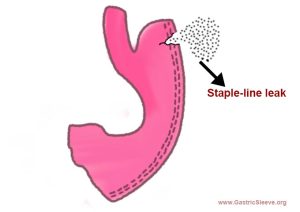
Food bypasses most of the stomach and the first section of the small intestine, and instead enters directly into the middle part of the small intestine. Food then goes into this small pouch of stomach and then directly into the small intestine sewn to it. Then, the surgeon cuts the small intestine and sews part of it directly onto the pouch. Typically, the stomach can hold about 3 pints of food. The resulting pouch is about the size of a walnut and can hold only about an ounce of food. The surgeon cuts across the top of the stomach, sealing it off from the rest of the stomach. It works by decreasing the amount of food you can eat at one sitting and reducing absorption of nutrients. This surgery is typically not reversible.

This procedure is the most common method of gastric bypass. Here's a look at common types of bariatric surgery: Be sure to talk to your doctor about them. Types of bariatric surgeryĮach type of bariatric surgery has pros and cons. Depending on your procedure, you may need to stay a few days in the hospital. After surgery, you awaken in a recovery room, where medical staff monitors you for any complications. Laparoscopic surgery can make recovery faster and shorter, but it's not suitable for everyone. The tiny camera on the tip of the laparoscope allows the surgeon to see and operate inside the abdomen without making the traditional large incisions. The laparoscope is inserted through small incisions in the abdomen. A laparoscope is a small, tubular instrument with a camera attached. Today, most types of bariatric surgery are performed laparoscopically. Some weight-loss surgeries are done with traditional large incisions in your abdomen. The specifics of your surgery depend on your individual situation, the type of weight-loss surgery you have, and the hospital's or doctor's practices. This means you're unconscious during the procedure.

What you can expectīariatric surgery is done in the hospital using general anesthesia. For instance, arrange for help at home if you think you'll need it. You may also need to prepare by planning ahead for your recovery after surgery. You may be required to start a physical activity program and to stop any tobacco use. You may have restrictions on eating and drinking and which medications you can take. You may need to have various lab tests and exams before surgery.
Stomach stapled side effects how to#
If you qualify for bariatric surgery, your health care team gives you instructions on how to prepare for your specific type of surgery.

In some cases, you may qualify for certain types of weight-loss surgery if your BMI is 30 to 34 and you have serious weight-related health problems.īariatric surgery isn't for everyone who is severely overweight. Your BMI is 35 to 39.9, called obesity, and you have a serious weight-related health problem, such as type 2 diabetes, high blood pressure or severe sleep apnea.Your body mass index (BMI) is 40 or higher, called extreme obesity.In general, bariatric surgery could be an option for you if: Nonalcoholic fatty liver disease (NAFLD) or nonalcoholic steatohepatitis (NASH)īariatric surgery is typically done only after you've tried to lose weight by improving your diet and exercise habits.Biliopancreatic diversion with duodenal switch (BPD/DS)īariatric surgery is done to help you lose excess weight and reduce your risk of potentially life-threatening weight-related health problems, including:.


 0 kommentar(er)
0 kommentar(er)
